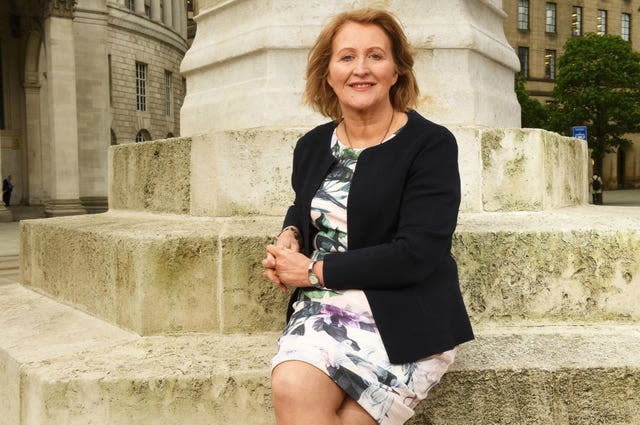Suicide attempts and self-harm ‘part and parcel of everyday life in a school’
The former Children’s Commissioner for England has spoken of “shocking” accounts from teachers that suicide attempts and self-harm are now “just part and parcel of everyday life in a school”.
Anne Longfield told peers that there is a large legacy of children with increased mental health needs in the wake of the coronavirus pandemic.
She told the Children and Families Act 2014 Committee: “The numbers … they’re just enormous. I’ve been struck over recent weeks about the number of teachers that have told me that suicide attempts, self-harm are just part and parcel of everyday life in a school now, in a really quite shocking way.”
For anyone who is struggling right now
📱 116 123 ✉️ jo@samaritans.org pic.twitter.com/97ehdNPwCP
— Samaritans (@samaritans) August 24, 2022
The former Children’s Commissioner was being questioned on challenges facing children and young people and the progress being made to tackle these.
Ms Longfield, who now heads up the Commission on Young Lives, said youth workers in schools helping children who are experiencing difficulties tell her they are experiencing more extreme and more frequent incidents.
They are also increasingly working with parents, she said.
Noting that funding for youth services has plunged, Ms Longfield says she wants to see an “army” of youth workers inspiring children and “getting them back to the place they want to be”.

Reflecting on the pandemic, Ms Longfield said she believes that the Government did not have a “strong enough appreciation” of the protection vulnerable children needed during the crisis.
At the time she was concerned that such children were slipping from sight, with social services referrals falling by half at its peak, with some of the impact of this “sadly” being seen now.
She also said she does not feel advice was sought from the Children’s Commissioner “on how to ensure children’s best interests were met”.
During her time in office she recalled facing “silos inside silos”, poor data sharing and a lack of long-term strategic funding.
And she said that “now more than ever” a children’s minister at cabinet level is needed.
She added: “I think we can see from the level of need that we have in so many children now, where anxiety’s through the roof, that actually it’s only going in one direction.”
Also giving evidence was the current Children’s Commissioner, Dame Rachel de Souza.
She said her survey of children in England, The Big Ask, found “their number one, their deepest concern” was about their mental health and wellbeing.
She said she is concerned children with more serious vulnerabilities have seen these exacerbated by the pandemic, and about children and adolescent mental health services (Camhs).
Waiting times for these services are coming down but there is still too much variation across local areas, she said.
Focus needs to be on children with “high-end” needs, she said, adding: “I think there is a really good solution emerging for general wellbeing and low to sort of medium health issues, it’s that really serious end that I’m really concerned about.”
A Government spokeswoman said: “We are supporting teachers to help children and young people to recover from the emotional impact of the pandemic, including by offering training to senior mental health leads in every state school and college by 2025.
“To support pupils with more complex needs, we have also invested an additional £79 million to expand children’s mental health services and accelerate the rollout of mental health support teams, which will give nearly three million children in England access to health experts through school or college by April 2024.”
An NSPCC spokesperson said: “The stark picture painted today by Anne Longfield sadly tallies with what we are hearing at Childline, with the service delivering tens of thousands of counselling sessions each year to children and young people who have self-harmed and are having suicidal thoughts and feelings.
“It is vital all children understand that mental health is not a taboo subject and are encouraged to speak to a trusted adult, be it a parent, teacher or a Childline counsellor, if they are starting to struggle. No child should be left to suffer in silence and be driven to harm themselves as a result of the mental turmoil there are experiencing.”
Help can be found by calling the Samaritans free of charge at any time on 116 123 or by email at jo@samaritans.org or visit Samaritans.org.
